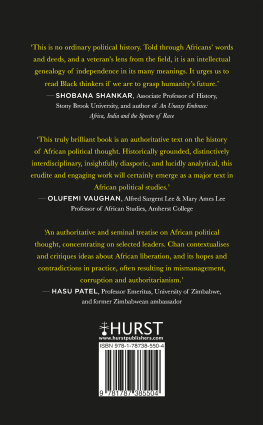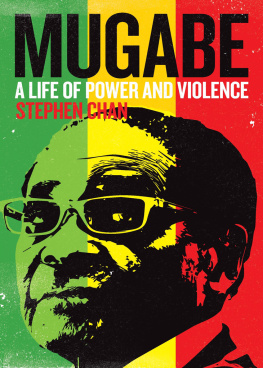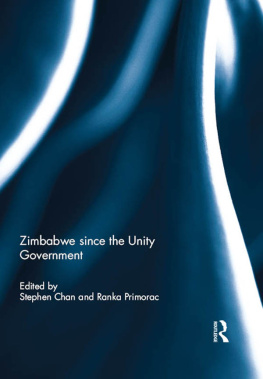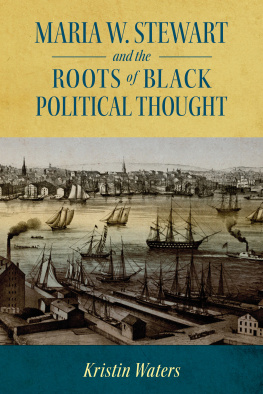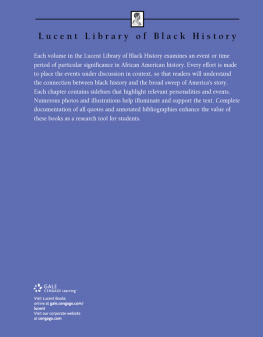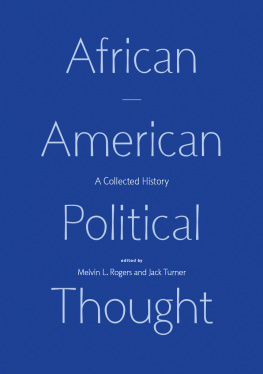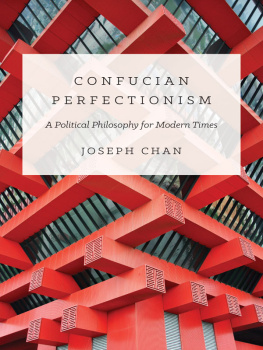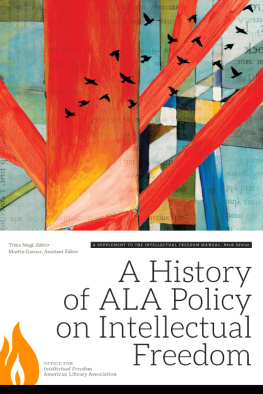Stephen Chan - African Political Thought: An Intellectual History of the Quest for Freedom
Here you can read online Stephen Chan - African Political Thought: An Intellectual History of the Quest for Freedom full text of the book (entire story) in english for free. Download pdf and epub, get meaning, cover and reviews about this ebook. year: 2021, publisher: C. Hurst & Co., genre: Politics. Description of the work, (preface) as well as reviews are available. Best literature library LitArk.com created for fans of good reading and offers a wide selection of genres:
Romance novel
Science fiction
Adventure
Detective
Science
History
Home and family
Prose
Art
Politics
Computer
Non-fiction
Religion
Business
Children
Humor
Choose a favorite category and find really read worthwhile books. Enjoy immersion in the world of imagination, feel the emotions of the characters or learn something new for yourself, make an fascinating discovery.
- Book:African Political Thought: An Intellectual History of the Quest for Freedom
- Author:
- Publisher:C. Hurst & Co.
- Genre:
- Year:2021
- Rating:3 / 5
- Favourites:Add to favourites
- Your mark:
- 60
- 1
- 2
- 3
- 4
- 5
African Political Thought: An Intellectual History of the Quest for Freedom: summary, description and annotation
We offer to read an annotation, description, summary or preface (depends on what the author of the book "African Political Thought: An Intellectual History of the Quest for Freedom" wrote himself). If you haven't found the necessary information about the book — write in the comments, we will try to find it.
African Political Thought: An Intellectual History of the Quest for Freedom — read online for free the complete book (whole text) full work
Below is the text of the book, divided by pages. System saving the place of the last page read, allows you to conveniently read the book "African Political Thought: An Intellectual History of the Quest for Freedom" online for free, without having to search again every time where you left off. Put a bookmark, and you can go to the page where you finished reading at any time.
Font size:
Interval:
Bookmark:

AFRICAN POLITICAL THOUGHT
STEPHEN CHAN
African Political Thought
An Intellectual History of the
Quest for Freedom

HURST & COMPANY, LONDON
First published in the United Kingdom in 2021 by
C. Hurst & Co. (Publishers) Ltd.,
83 Torbay Road, London, NW6 7DT
Copyright Stephen Chan, 2021
All rights reserved.
The right of Stephen Chan to be identified as the author of this publication is asserted by him in accordance with the Copyright, Designs and Patents Act, 1988.
Distributed in the United States, Canada and Latin America by Oxford University Press, 198 Madison Avenue, New York, NY 10016, United States of America.
A Cataloguing-in-Publication data record for this book is available from the British Library.
ISBN: 9781787385504
This book is printed using paper from registered sustainable and managed sources.
www.hurstpublishers.com
CONTENTS
PREFACE
For the most part Africa had to fight for its independence. Africa entered a world that, even when it sought not to be racist, was condescending. Even Sartre, in his Preface to Fanons The Wretched of the Earth, wrote of the rebellious native with his mad fury bitterness and spleen their ever-present desire to kill us the permanent tensing of powerful muscles which are afraid to relax, as the evidence of rebellion against colonialism.included the diaspora, and concludes with a meditation on todays Africa where, finally, the writing back to the former colonial and metropolitan powers is in a philosophical language that the West must learnthe traffic has turnedand appreciate it as being as equally directive of the future of the world as its own philosophies seek to be.
Linking the origins of African political thought to roots in the USA has meant an Anglophonic emphasis in this book. But Francophonic and Lusophonic thought is also represented.
The genesis of this book lies in my lecture course at SOAS University of London, African Political Thought, and over many years of delivering this course to both graduate and undergraduate students I have incurred many debts to them for their incisive and thoughtful responses and challenging engagements. Many of them came from African countries and, often, they queried my conclusionseven though I myself have travelled in Africa since 1979, and lived there for some years, working as both an international civil servant and academic, having both a public and a private practice that took me from war zones to slums and to high places, from sleeping in bombed out ruins to the mansions of ministers, rebuilding governments and helping liberation movements to become governments; and to sitting on the side of African delegations negotiating trade issues in Beijing and Washington, DC. The fatal mistake would have been simply to humour my students while thinking them wrong. They most often werent and I am grateful for their gentle and reasoned reproofs. My colleagues at SOAS, and at various African universities, were always kind and helpfulif sometimes impatient with me. I first decided to mount my lecture course after being awarded the International Studies Associations accolade, Eminent Scholar in Global Development, in 2010. It had been awarded the year before to Mahmood Mamdani, whose own course, at Columbia, on African political thought was then the only one in the world. At least, I thought, there should be one on each side of the Atlantic. So now there is. But, as far as I know, still no moreand, if some, not many more. Perhaps this book, as well as its goal of seeking to illuminate sometimes deep and certainly historically important thought, might encourage other professors to finally teach the basic idea that a continent, in seeking freedom and development, does so with thought. And, because it does so thoughtfully, that thought is able to be critically appreciated, its contradictions and lapses indicated. I did not want to write intellectual hagiographies. By and large, Africa is 70 independent years old. To write about thinking is to remove security and mere heroism.
Pimlico, London, 2021
ANTECEDENTS
RACE AND ROMANTICISM
Africa was far from discovered by European missionaries and celebrity explorers. Many of the latter were feted like rock stars in the clubs and learned societies of Victorian London, and deliberately played up the ideas of exotica and backwardness. Africa was not their only subject. The image of the noble savage was drawn from the Maori resistance, of great chivalry, to white settler colonialism. But, whether adventurism in remote parts was condescending or gracious, the end result was all the same: an imperial outreach and a colonialism. The Berlin Conference at the end of 1884 and beginning of 1885 literally divided Africa among the European powersthe political cartoonists of the day portraying it like a knife to a gigantic Christmas pudding. And they were able to do so because the phenomenon of corporate colonialism, exemplified by Cecil Rhodes and his search for gold and other mineral wealth, was confined to the southern part of the continent. Northern Africa, the Maghreb, represented a contestation between established governments and European powers. The bulk of sub-Saharan Africa was valuable but not worth going to war overthus the carving of the continent like a pudding on the day of Christs birth.
But North Africa was an interesting case of the continent being far from dark. In the bitter days of English isolation from Europe, when the Protestant Queen Elizabeth sought to face down the armada and pressures from Catholic Spain, her court desperately sought diplomatic allies wherever they could be found. The portrait of the Ambassador to London from Morocco, an Islamic power, still hangs from time to time in the Tate Britain. Shakespeare made a tragic hero of Othello, a mercenary admiral from North Africa serving the Venetian navy. And the British were later hoisted on their own petard as they tried to crush or apply sanctions against the infant United States. The US also sought diplomatic allies from North Africafor instance, ironically, from what is now Libya.
In fact, Islam had appeared in Africa in the 10th century, well before the advent of European trade missions and slave raids on the continent from the 1500s. Chinese Admiral Zheng He, in his expeditions to East Africa in the early 1400s, was able to make contact with the local population by virtue of himself being Islamiceven if with different customs and lawsleaving behind porcelain cups, fragments of which can still sometimes be found on the shores of Dar es Salaam, and taking home to his emperor a living giraffe. It epitomised an East African coast with an international exchange of ideas and culture well before the advent of European interest.
Islamic powers conducted their own slave trade in Africa, but Western plundering of sub-Saharan Africa for slaves helped populate the Caribbean islands, and led to large black populations in continental America, notably Brazil and the United States. For the most part slavery was abolished as the 19th century wore on: in Europe in the 1830s, Brazil as late as the 1880s; in the US, it was abolished in the 1860s, but it took a bloody civil war and Abraham Lincolns proclamation of liberty, and by then the idea of return had already set in to the minds both of many members of the black population and their white well-wisherswho, although liberal and well-minded in the terms of their times, often saw blackness as out of place in a vast country with a white vision of its future. The African Americans who engaged with this idea and began envisaging their own future back in Africa were some of the very first black and African people to conceive a politics responding to Western colonisation, imperialism and slavery.
Font size:
Interval:
Bookmark:
Similar books «African Political Thought: An Intellectual History of the Quest for Freedom»
Look at similar books to African Political Thought: An Intellectual History of the Quest for Freedom. We have selected literature similar in name and meaning in the hope of providing readers with more options to find new, interesting, not yet read works.
Discussion, reviews of the book African Political Thought: An Intellectual History of the Quest for Freedom and just readers' own opinions. Leave your comments, write what you think about the work, its meaning or the main characters. Specify what exactly you liked and what you didn't like, and why you think so.

